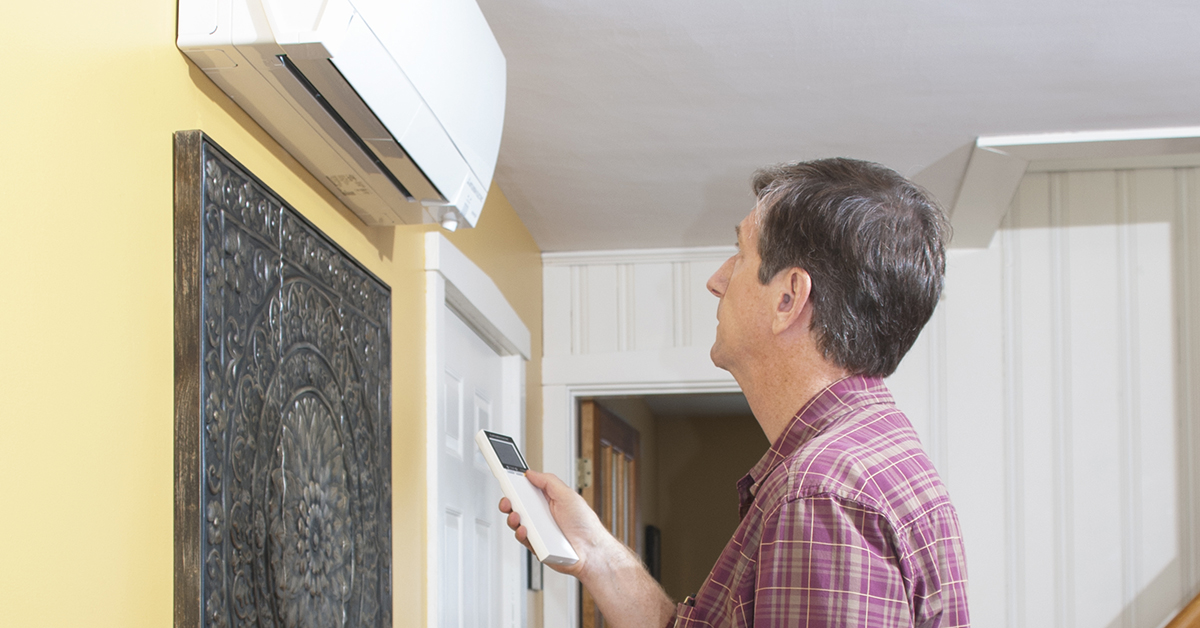Blog
Heat Pump User Tip: What Mode Should I Use On My Heat Pump?

Mainers have installed tens of thousands of heat pumps in their homes and businesses because they are the most efficient way to heat and cool a building, saving users on their energy costs throughout the entire year. If you’ve made the investment, or are considering it, we’d like to share some tips on how you can save the most with a heat pump. In our last user tip blog post, we discussed the benefits of doing routine maintenance on your heat pump. This sixth post in our series discusses how to use the different modes of your heat pump.
Heat pumps have a variety of modes, including “Heat,” “Cold,” “Dehumidify,” “Fan,” and “Auto.” When choosing which mode to use on your heat pump, there are a few things to keep in mind that may help you, especially during this period of transition from summer into fall.
First, we recommend that you avoid “Auto” mode. The Auto mode on heat pumps allows the heat pump to decide whether to heat or cool the space, but it doesn’t always know best. “Auto” mode could cause your heat pump to heat on a cool summer night or cool on a sunny fall or winter afternoon. To avoid accidentally cooling during the fall and winter, use “Heat” mode. Likewise, to avoid accidentally heating on a cool summer night, use “Cool,” “Dry,” or “Fan,” but not “Auto.”
During the summer months, it’s helpful to understand the various settings of your heat pump so you can find the one that’s most comfortable for you. There are three heat pump modes for summer: “Fan,” “Dry,” and “Cool.” “Fan” uses the least energy and may suffice when you need a little relief, but it won’t cool the room, so be sure to turn it off when you leave. When it’s warm and muggy, “Dry” mode can reduce the humidity and make the room feel more comfortable. “Cool” mode is the best choice for lowering the temperature and humidity on the hottest days. Additionally, although we do generally recommend running your heat pump continuously– rather than turning it on and off– we do make an exception to this rule on days where the weather outside is beautiful and you want to open up your windows. In this instance, we recommend turning off your heat pump temporarily. Lastly, while we do not recommend using “Auto” mode for the heating and cooling function, we do recommend using “Auto Fan” mode to control air circulation as it tends to be the most efficient setting for that function.
So, when choosing which setting to use on your heat pump, we suggest you consider the season and humidity, and avoid “Auto” mode. This will help you get the most out of your heat pump and see the most savings on your energy bill.
Efficiency Maine offers rebates and loans for homeowners and businesses interested in installing heat pumps. If you are interested in purchasing a heat pump, go to www.efficiencymaine.com/about-heat-pumps/ for more information on how to select a model, apply for rebates and financing, review installation considerations, and more. Also check www.efficiencymaine.com/heat-pump-user-tips/ to see more tips like this one and to view a video on how to get the most from your heat pump. To estimate your home heating costs, consider using our Home Heating Costs Calculator.
To subscribe to Efficiency Maine’s blog page, please click here.
